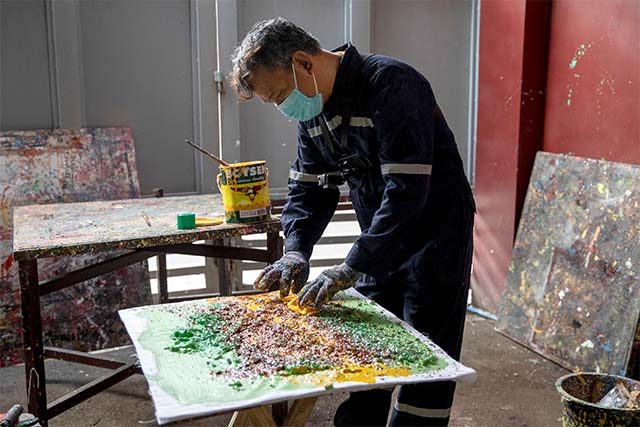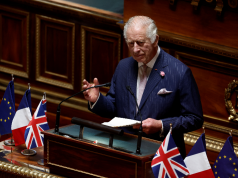
MANILA — When Filipino artist Gilbert Angeles found out that his country was one of the world’s biggest contributors of plastic trash in the ocean he felt compelled to take action.
Angeles decided the best way to show how discarded waste could be given a new life in a different medium was to incorporate materials ranging from shredded plastic to old paint and leftover construction wood in his paintings.
Since 2019, he has made over two dozen paintings of this kind.
“I make these artworks to raise awareness so we can fight against the trash in our area, to make us more responsible in how we dispose of our trash, and to make us aware of where our trash goes,” said the 49-year-old.
The artist sources the materials from around his Manila neighborhood or through donations from contacts he has made since launching his environmental campaign.
Angeles remembers being spurred on to take up the project after seeing a news report about the Philippines being one of the top contributors of plastic waste.
The Philippines, Indonesia, Thailand, Vietnam and China account for around 60% of the world’s marine plastic, or 8 million tons annually, according to a 2017 report from the Ocean Conservancy and the McKinsey Center for Business and Environment.
Angeles’ artwork has since been shown in galleries, with paintings selling for around $600 to $3,000, depending on the size. Part of the proceeds goes to his environmental group, Green Artz, which encourages artists to use recycled waste in their work.
“I love the fact that it gives us hope,” said Linda Pecoraro, general manager of Conrad Hotel, where Angeles’ work is being exhibited.
“It’s got beautiful colors and recycled plastic, repurposing things that damage our environment and making them beautiful.” —Reporting by Adrian Portugal; Writing by Ed Davies; Editing by Karishma Singh









